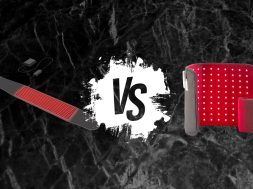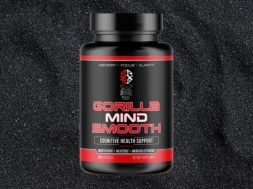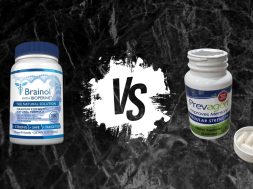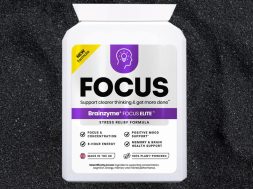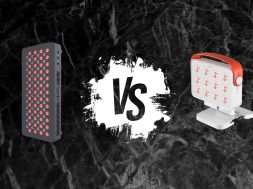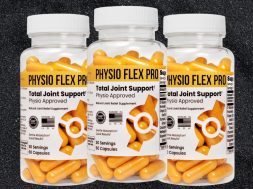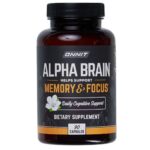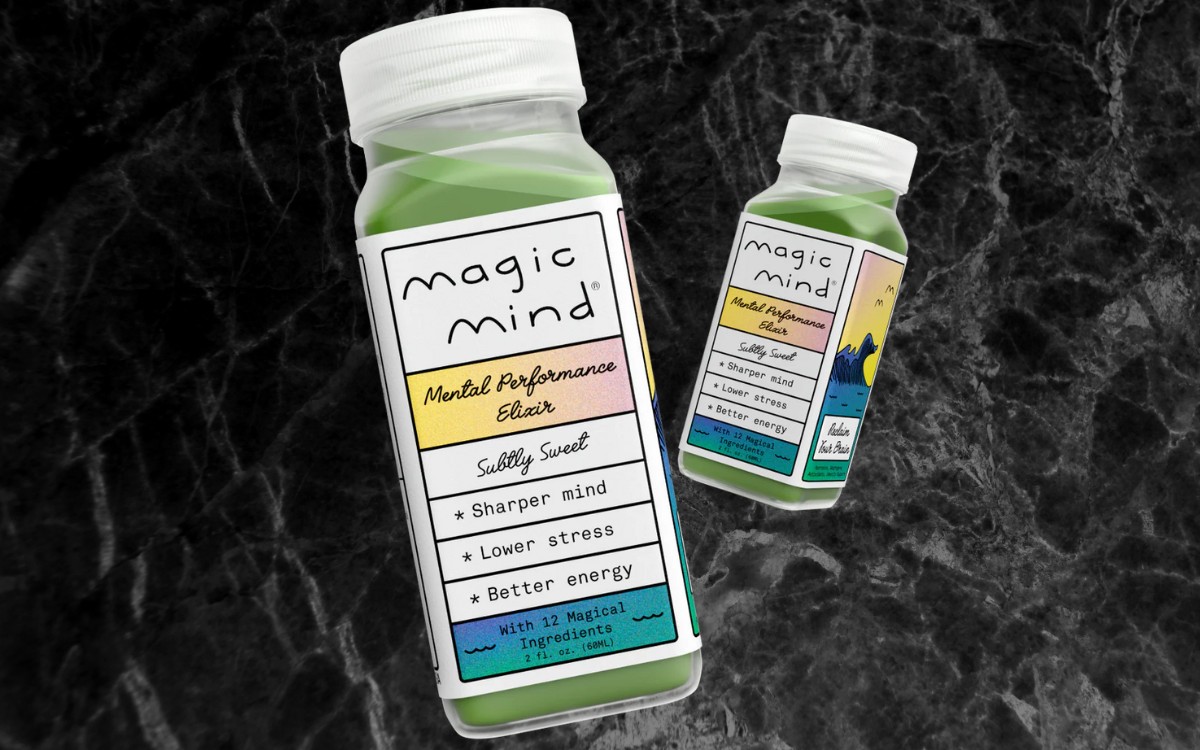
After testing everything from Mind Lab Pro to Alpha Brain to custom nootropic stacks, I thought I’d seen it all in the cognitive enhancement space.
Then Magic Mind started flooding my social feeds with claims of being “the world’s first mental performance shot”. I saw yet another liquid nootropic promising to revolutionize productivity.
The nootropics market is packed with overhyped products that under-deliver, especially the trendy drink formats. But when you’re managing training, content creation, and family life on minimal sleep, curiosity eventually wins over skepticism.
So I put Magic Mind through the same testing protocol I use for all cognitive supplements: real-world conditions, honest tracking, and comparison against proven alternatives. After several weeks of use, here’s what this expensive little green shot actually delivers.
Quick Verdict
Magic Mind delivers on many of its promises, providing clean, sustained energy and improved focus without the jitters of traditional energy drinks.
The combination of high-quality nootropics and adaptogens creates a noticeable cognitive boost that lasts throughout the day.
However, the proprietary blend format severely limits transparency about dosing, and the premium price point makes it a luxury rather than an accessible daily supplement.
While it works, Mind Lab Pro offers better value and transparency for those seeking comprehensive cognitive enhancement.
Pros
- Clean, sustained energy without crashes or jitters
- High-quality, research-backed ingredients, including Cognizin® citicoline
- Convenient ready-to-drink format perfect for busy schedules
- Three formulations (Original, MAXX, FREE) to suit different caffeine preferences
- Notable stress reduction from adaptogens like Ashwagandha
- Effective for reducing coffee dependency
- 100-day money-back guarantee
Cons
- Proprietary blend lacks ingredient dosage transparency
- Premium pricing at $178.50-$193.50 per month makes daily use expensive
- Acquired taste that some find bitter or “earthy”
- Single-use plastic bottles create environmental waste
- May cause digestive issues in sensitive individuals
- Effects can be subtle and vary significantly between users
What Is Magic Mind?
Magic Mind burst onto the nootropics scene in 2020, founded by entrepreneur James Beshara after a caffeine-induced trip to the ER sparked his quest for a healthier energy alternative.
Based in Los Angeles, the company positions itself as the creator of “the world’s first mental performance shot.”
The 2-fluid-ounce shots combine ceremonial-grade matcha with a blend of nootropics, adaptogens, and essential vitamins. Unlike traditional energy drinks that rely heavily on caffeine and sugar, Magic Mind takes a more sophisticated approach to cognitive enhancement.
Magic Mind comes in three distinct formulations to accommodate different caffeine tolerances and timing preferences.
The Original contains 55mg of natural caffeine, about half a cup of coffee, while the MAXX version packs 165mg for caffeine enthusiasts. The FREE version eliminates caffeine entirely, making it suitable for evening use or those avoiding stimulants.
The company markets heavily to high-performers: entrepreneurs, athletes, creators, and busy professionals seeking cognitive enhancement without the downsides of traditional stimulants.
Their branding emphasizes sustained mental performance, stress reduction, and the elimination of afternoon crashes.
What sets Magic Mind apart in the crowded nootropics market is its ready-to-drink format and focus on bioavailability. The company claims to use nano-encapsulation technology to improve ingredient absorption, though specific details about this process remain vague.
Magic Mind Ingredients
Here’s where Magic Mind sits in an interesting gray area. They use a proprietary blend called “Magic Mind Nulixir” totaling 6,260mg, which doesn’t disclose individual ingredient amounts.
While I’d always prefer full transparency, this isn’t just some tiny pixie dust blend; 6.26 grams is actually a substantial amount that could potentially house effective doses of multiple ingredients.
To put this in perspective, if you distributed this evenly across their 10 core ingredients, you’d get over 600mg per ingredient. That’s enough to potentially include clinically effective doses of compounds like Bacopa Monnieri (300mg), Ashwagandha (300-600mg), and others.
Of course, we can’t know for sure, but the blend size suggests Magic Mind isn’t just using token amounts for label appeal. The blend’s size is not enough to house everything in optimal doses, but most should be in meaningful doses at least.
Still, this guessing game is frustrating for anyone who wants to verify they’re getting therapeutic doses. It’s 2025, and consumers deserve transparency, especially at these price points.
Ceremonial Grade Matcha (Leaf)
The foundation of Magic Mind’s formula is high-quality matcha sourced from Encha Matcha. Matcha provides L-theanine (promoting calm focus) and natural caffeine for sustained energy. The ceremonial grade designation indicates premium quality with minimal processing.
While matcha is excellent for providing clean energy and mental clarity, without knowing the exact amount in Magic Mind, it’s difficult to assess whether you’re getting therapeutic levels of beneficial compounds like EGCG and L-theanine.
Ashwagandha (Root)
Ashwagandha is one of the most researched adaptogens, with strong clinical evidence supporting its stress-reducing properties. Studies show that 300-600mg daily can significantly lower cortisol levels and reduce anxiety symptoms.
Given the substantial 6.26g total blend, there’s a reasonable chance Magic Mind contains clinically effective amounts of Ashwagandha. This is expensive stuff, so including it in meaningful doses would justify some of the premium pricing.
Bacopa Monnieri (Whole Herb)
Bacopa Monnieri has solid research backing its memory-enhancing properties, with studies showing improvements in recall and cognitive processing at doses of 300-450mg daily over 12 weeks.
The inclusion of “whole herb” rather than a standardized extract (typically 24% bacosides) suggests potentially lower potency.
Citicoline (as Cognizin®)
This is where Magic Mind shines. They use Cognizin®, a premium, patented form of citicoline with strong research support for cognitive enhancement. Studies show benefits at 250-500mg daily for memory, focus, and mental energy.
Citicoline is expensive, so its inclusion suggests Magic Mind is serious about efficacy. Given that this is likely one of their flagship ingredients, they’re likely including clinically meaningful amounts.
Rhodiola Rosea (Root)
Rhodiola is an adaptogen with research supporting its anti-fatigue and stress-reducing properties. Effective doses typically range from 200-400mg daily, standardized to specific rosavin and salidroside content.
The 6.26g blend size could easily accommodate effective rhodiola doses, and this ingredient pairs well with Ashwagandha for comprehensive stress support.
Turmeric (Root)
Turmeric provides curcumin, a potent anti-inflammatory compound. However, curcumin has poor bioavailability without piperine (black pepper extract) to enhance absorption. Magic Mind doesn’t list piperine in their formula, potentially limiting turmeric’s effectiveness.
Lion’s Mane (Fruiting Body)
Lion’s Mane mushroom shows promise for cognitive enhancement and neuroprotection, with studies suggesting benefits at 500-1000mg daily. Magic Mind specifies they use fruiting bodies rather than mycelium, which is positive for quality.
The large blend size could accommodate effective Lion’s Mane doses, making this a potentially valuable inclusion.
Cordyceps
Cordyceps mushrooms are traditionally used for energy and endurance, with some research supporting cognitive benefits. Effective doses typically range from 1000-3000mg daily for standardized extracts.
There surely isn’t 3 grams of Cordyceps in Magic Mind, but 500-1000 mg. can be inside, so you are looking at potential benefits from this mushroom.
L-Theanine
L-Theanine is the real MVP when it comes to creating that “calm focus” feeling that Magic Mind is known for. This amino acid, naturally found in green tea, works synergistically with caffeine to provide energy without the jitters.
The ideal ratio is typically 2:1 L-theanine to caffeine (200mg L-theanine to 100mg caffeine), so most likely the right ammount is there.
Natural Caffeine
Magic Mind uses natural caffeine sources rather than synthetic caffeine anhydrous, which I appreciate. The Original contains 55mg, which is about half a cup of coffee, while the MAXX packs 165mg for caffeine enthusiasts.
I found the 55mg dose perfect for sustained energy without overdoing it. Having dealt with caffeine dependency issues in the past (hello, 6-7 cups daily), I appreciated being able to get cognitive benefits without ramping up my tolerance again.
Magic Mind Price
Magic Mind’s pricing definitely puts it in the luxury supplement category, and honestly, it made me wince a bit when I first saw the numbers:
Original Formula:
- 30-bottle supply: $178.50 single purchase ($5.95 per bottle)
- With subscription: 58% off first purchase, then 45% off forever
- Subscription price: ~$98 monthly ($3.27 per bottle)
MAXX Formula:
- 30-bottle supply: $193.50 single purchase ($6.45 per bottle)
- Same subscription discounts as Original
- Subscription price: ~$106 monthly ($3.53 per bottle)
FREE Formula:
- Similar pricing to Original
Even with the subscription savings, you’re looking at around $100+ monthly for daily use. To put this into perspective, Mind Lab Pro costs around $69 per month and offers complete transparency in dosing.
Benefits of Magic Mind
Enhanced Focus and Mental Clarity
The focus benefits from Magic Mind hit differently than traditional stimulants. Instead of that laser-focused, slightly manic energy you get from high-dose caffeine, Magic Mind provides what I can only describe as relaxed concentration.
Sustained Energy Without the Roller Coaster
Anyone who’s relied on coffee for years knows the energy pattern: that initial surge of alertness, followed by productive focus, then the inevitable crash that has you reaching for another cup. Magic Mind breaks this cycle entirely.
The quality of energy feels fundamentally different. Coffee gives me this urgent, slightly anxious motivation that’s great for certain tasks, but can make me feel scattered. Magic Mind provides calm alertness, energized but centered.
Stress Resilience and Emotional Regulation
Perhaps the most valuable benefit for someone juggling multiple responsibilities is improved stress response. The adaptogenic herbs, particularly Ashwagandha and rhodiola, provide a noticeable buffer against daily stressors.
Cognitive Flexibility and Creative Problem-Solving
One unexpected benefit was improved creative thinking during content creation. Developing engaging content requires connecting exercise science with practical application in ways that are both accurate and entertaining.
During one video scripting session, I found myself naturally generating multiple angles for discussing a single topic, seeing connections between concepts that I might normally miss. Instead of following my usual formulaic approach to content creation, I was able to think more dynamically about how to present information.
Who Is Magic Mind For?
High-Performing Professionals Who Value Time Over Money
Magic Mind’s target demographic is crystal clear: successful professionals who’ve reached the point where time is more valuable than money. These are folks pulling in six figures who don’t blink at spending $100+ monthly on a supplement if it genuinely improves their performance.
For these individuals, even a 10% improvement in cognitive performance could translate to significantly higher earnings or better life outcomes.
The convenience factor cannot be overstated for this demographic. When you’re billing $300+ per hour, spending 10 minutes each morning measuring out supplements can even be considered economically inefficient.
Busy Parents Seeking Sustainable Energy
Parents, particularly those managing careers alongside child-rearing, represent another core demographic. The transition from coffee-dependent energy to sustained alertness can be genuinely life-changing when you’re operating on broken sleep.
Usually, when one or both of my kids decide to wake up at 5:30 AM I’d compensate with extra coffee, which just made me more anxious and jittery when dealing with cranky toddlers. Magic Mind provided calm energy that helped me stay patient and mentally present during challenging parenting moments.
Content Creators and Creative Professionals
The combination of sustained focus and stress reduction makes Magic Mind particularly appealing for creative work. Writing, video production, graphic design, and other creative endeavors benefit from that relaxed concentration state Magic Mind promotes.
Who Should Look Elsewhere
Budget-Conscious Individuals: Let’s be realistic—if spending $100+ monthly on a supplement would strain your budget, Magic Mind isn’t for you. There are more cost-effective ways to improve cognitive performance, starting with optimizing sleep, exercise, and basic nutrition.
Supplement Skeptics Wanting Transparency: If you’re the type who reads every label and wants to know exact dosages of every ingredient, Magic Mind’s proprietary blend will drive you crazy. You’ll be better served by products like Mind Lab Pro or Hunter Focus that provide complete transparency.
My Experience With Magic Mind
I approached Magic Mind with the same skepticism I have toward any supplement that costs more than my weekly coffee budget. But between the constant barrage of social media ads and genuine curiosity about whether anything could help me power through those brutal afternoon training sessions after a night of broken sleep (thanks, kids), I decided to give it a shot.
The First Impressions
My first taste of Magic Mind was… educational. If you’ve never had ceremonial-grade matcha mixed with a pharmacy’s worth of herbs, it’s definitely an experience. It tastes like someone mixed green tea with liquid vitamins and a hint of earth, not unpleasant once you adjust, but definitely not a flavor you crave. I’ve choked down worse pre-workouts, so it wasn’t a dealbreaker.
The texture is smooth with no grittiness or chunks to worry about. I typically downed it in two or three gulps, followed by some water to clear the herbal aftertaste.
Morning Routine Integration
I started incorporating Magic Mind into my morning routine, usually about 30 minutes after breakfast while reviewing the day’s tasks.
The convenience factor immediately won me over. As someone who used to juggle five different supplement bottles each morning, having everything in one shot was a relief. No measuring, no mixing, no forgetting to take the second dose of something later. Just grab, drink, and go.
The Cognitive Shift
What struck me first wasn’t a dramatic “limitless pill” moment, but rather a subtle shift in mental state. During my usual morning content planning session, I found myself naturally organizing thoughts more clearly.
Instead of jumping between ideas for Instagram posts, YouTube videos, and article topics, I could hold multiple concepts in working memory and actually connect them logically.
Training Day Performance
The real test came during my own training sessions. I typically lift in the morning, so my energy levels are high, but distractions from the
kids or mind wandering about work can derail some training sessions.
Magic Mind changed that dynamic, and most days I felt locked in on each rep, automatically adjusting my setup based on how the previous lift felt.
That’s mind-muscle connection that strength coaches always talk about. Now, this is not something Magic Mind instantly unlocks, but it definitely helps.
Perhaps the most valuable change was how I responded to the daily chaos of running a business while managing family life. Anyone with young kids knows that moment when you’re trying to write an important email and suddenly there’s screaming from the next room. Usually, that interruption would completely derail my focus for the next 20 minutes.
With Magic Mind, I found myself bouncing back from these interruptions faster. I could deal with whatever kid crisis was happening, then return to my work without that lingering stress or the need to completely reorient myself to what I was doing.
But let me be clear, Magic Mind isn’t magic. It didn’t turn me into Bradley Cooper from Limitless or make me suddenly capable of things I couldn’t do before. What it did was remove friction from cognitive tasks I was already capable of performing.
The effects were most noticeable on demanding mental days and seemed to compound over time. After about 20 days of consistent use, the benefits felt more stable and predictable. I knew I could count on that calm, focused energy for about 4-6 hours after taking it.
At roughly $100 monthly, Magic Mind costs more than my gym membership. The convenience and effectiveness are real, but I kept calculating how many other supplements I could buy for the same money.
For high-stress professionals who can easily afford the premium and value convenience over everything else, the investment might make sense.
For coaches, trainers, or content creators like myself, it’s harder to justify unless you’re already very successful.
Customer Magic Mind Reviews
The True Believers (Approximately 60-70% of reviewers)
The positive reviewers tend to fall into specific categories. These are typically high-stress professionals, entrepreneurs, and people who’ve struggled with coffee dependency or energy crashes.
Many report what I experienced-sustained energy without jitters, improved stress resilience, and better focus during demanding mental tasks.
The most common praise points include dramatic reduction in coffee consumption, sustained 4-6 hour energy periods without crashes, improved ability to handle stressful situations calmly, enhanced focus during creative work, and better mood stability throughout the day.
One pattern I noticed among positive reviewers is patience with the effects. They typically mention benefits building over several days to weeks, suggesting they stuck with the product long enough for the adaptogens to take effect. This matches the company’s claims about needing 5-10 days for full benefits.
Specific Positive Examples:
- “Been taking it everyday now for the past 3 months. It’s all it’s hyped up to be and it works.” – Douglas D.P.
- “I was drinking too much caffeine, about 600mg per day. Now I start my day with 1 Magic Mind and that’s all I need. I definitely feel less anxious and in a better mood.”
- “Nothing gives me a lift like Magic Mind. It’s subtle yet noticeable. Way better than coffee in the AM.” – 71-year-old customer
The Disappointed and Disgusted (Approximately 20-25% of reviewers)
The negative reviews cluster around several predictable issues, but the intensity of some complaints suggests Magic Mind isn’t just ineffective for these users, it’s actively unpleasant.
Taste complaints dominate negative feedback. Descriptors like “rotten,” “bitter,” “sickening,” and “absolutely nasty” appear repeatedly. Unlike positive reviewers who mention acquiring a taste for it, negative reviewers seem unable to get past the flavor profile.
More concerning are the digestive issues reported by a significant minority of users. Some report severe cramping, diarrhea, nausea, and headaches.
The severity suggests either ingredient sensitivities or possibly taking Magic Mind on an empty stomach despite recommendations.
Critical Reviews:
- “Magic Mind Original and Magic Mind Maxx taste herbal in a rotten way and bitter. Both gave me stomach problems and horrible diarrhea.”
- “I really did not notice a difference in my mental clarity or energy after drinking.”
- “Day 1, a few minutes after drinking, I experienced extreme stomach cramps followed by extreme diarrhea, bad headache and nausea.”
The Price-Conscious Middle Ground (Approximately 10-15% of reviewers)
This group acknowledges Magic Mind’s effectiveness but questions the value proposition. They often mention positive cognitive effects but conclude it’s not worth the ongoing cost.
These reviewers frequently compare Magic Mind to less expensive alternatives, such as coffee, traditional nootropic capsules, or other energy drinks. They’re not dismissing the product but approaching it with practical financial constraints.
The overall pattern suggests Magic Mind works well for its target demographic: stressed, successful professionals who value convenience over cost and prefer subtle, sustained benefits over dramatic effects. However, individual response varies significantly, and the product clearly isn’t for everyone.
Magic Mind Side Effects
Magic Mind is generally well-tolerated, but some users report digestive upset, particularly when taken on an empty stomach, nausea or stomach cramps in sensitive individuals, and mild headaches during initial adaptation period.
From the caffeinated versions, some experience jitters or anxiety in caffeine-sensitive users (primarily with MAXX formula), sleep disruption if taken too late in the day, and increased heart rate in susceptible individuals.
I experienced no significant side effects during my testing period, but I was careful to take it with food and stick to morning consumption.
The adaptogenic herbs are generally safe for most people, but those with autoimmune conditions should consult healthcare providers before using Ashwagandha.
Magic Mind Alternatives
Onnit Alpha BRAIN Focus Shot
The Onnit Alpha Brain Focus Shot is less expensive than Magic Mind but also uses proprietary blends. The flavor is generally more palatable, but the cognitive effects are milder in my experience. Better for those wanting to try the liquid shot format without the premium Magic Mind pricing.
You can read about my experience in my Alpha Brain review.
Thesis

Thesis takes a personalized approach with six different blends targeting specific cognitive areas (Focus, Energy, Motivation, etc.). Each blend contains 4-6 ingredients in transparent doses.
Thesis is even more expensive than Magic Mind but offers customization and dosage transparency. The ability to target specific cognitive needs makes it appealing for users who want precision over convenience.
However, the capsule format lacks Magic Mind’s grab-and-go simplicity. You can read about my experience in my Thesis Nootropics review.
Hunter Focus
Hunter Focus offers better value than Magic Mind with superior ingredient transparency and comprehensive cognitive support. The extensive formula targets multiple pathways simultaneously.
However, it requires taking 6 capsules daily and lacks the convenience of a ready-to-drink format. You can read about my experience in my Hunter Focus review.
Frequently Asked Magic Mind Questions
How long does it take for Magic Mind to work?
Most users report feeling effects within 30-60 minutes of consumption. The immediate benefits include increased energy and focus, while the adaptogenic effects (stress reduction, mood enhancement) become more pronounced with consistent daily use over 5-10 days.
The company suggests that nootropics and adaptogens build up in your system, with full benefits appearing after consistent use for several weeks.
Can I drink Magic Mind with coffee?
Yes, Magic Mind can be combined with coffee, though this isn’t necessary for most users. The Original formula contains only 55mg of caffeine, so adding coffee won’t typically cause excessive stimulation.
However, one of Magic Mind’s primary benefits is reducing coffee dependency, so combining them somewhat defeats the purpose. Many users find Magic Mind eliminates their need for additional caffeine. I found the 55mg in Magic Mind was enough to satisfy my morning caffeine ritual without needing coffee.
Is Magic Mind safe for daily use?
Magic Mind is designed for daily consumption and contains generally recognized as safe (GRAS) ingredients. The company conducts third-party testing for purity and potency.
However, daily use at these prices becomes expensive quickly. Consider cycling off periodically (weekends or one week every 2-3 months) to maintain sensitivity to the ingredients and give your body a reset. I didn’t experience any issues with daily use during my testing period.
What happens if I stop taking Magic Mind?
Unlike stimulants that can cause withdrawal, discontinuing Magic Mind typically doesn’t produce adverse effects. You may notice a return of baseline energy levels and stress response as the adaptogenic benefits fade.
Some users report missing the sustained energy and cognitive clarity, leading them to resume use or seek alternative nootropics to maintain the benefits.
Summary
Magic Mind delivers on its core promises of clean energy, improved focus, and stress reduction without the crashes associated with traditional energy drinks.
The high-quality ingredients, convenient format, and notable stress-buffering effects make it a solid choice for busy professionals seeking cognitive enhancement.
For its target demographic of successful professionals who value time over money, Magic Mind can be genuinely transformative.
However, the proprietary blend format severely limits transparency, making it impossible to verify optimal dosing. The premium pricing puts daily use out of reach for many consumers, costing more than most people’s entire supplement budget. The taste remains polarizing, and individual responses vary significantly.
For those seeking better value and transparency in cognitive enhancement, Mind Lab Pro remains the superior choice. It offers clinically-dosed ingredients, comprehensive cognitive support, and better affordability for long-term use. Stick with proven, transparent alternatives like Mind Lab Pro that offer better bang for your buck.
Mind Lab Pro
Mind Lab Pro Nootropic Brain Supplement
Non-Stimulant Nootropic For Instant Brain Boost
Boost brain power & reduce cognitive decline.
CHECK CURRENT DEALS


